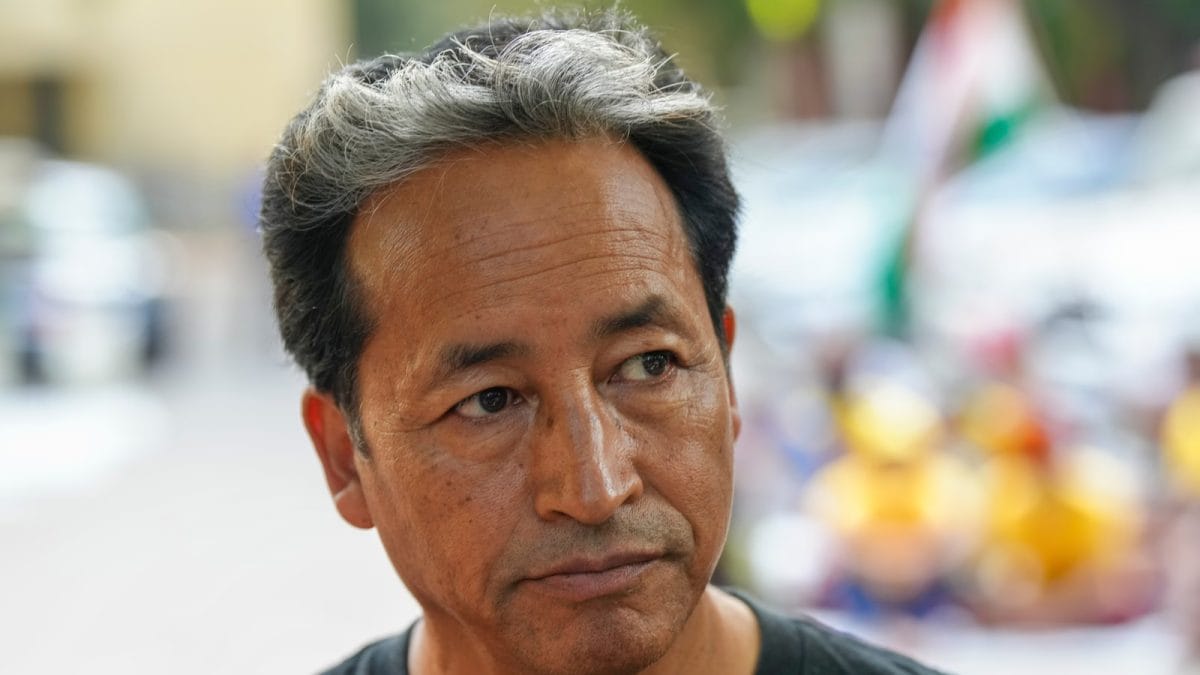Last Updated:
While Wangchuk projected his fast as Gandhian, authorities squarely blame his rhetoric for sparking the subsequent escalation

Wangchuk is accused of continuously linking the Ladakh protests to global movements, with his references to the ‘Arab Spring’ and ‘Nepal’s Gen Z uprisings’ being read as explicit blueprints for mass unrest. File pic/PTI
Government sources have delivered a stark security assessment of the recent unrest in Ladakh, arguing that activist Sonam Wangchuk’s actions constitute a deliberate challenge to state authority in a critical border region. The sources assert that his recent arrest was “absolutely right and was required to know the sudden reason of this aggression before talks”, framing the activist as a destabilising force due to the confluence of his activities, foreign funding, and the proximity to the sensitive China border.
Recommended Stories
For Delhi, this activism is seen through a critical national security lens. Wangchuk is accused of continuously linking the Ladakh protests to global movements, with his references to the “Arab Spring” and “Nepal’s Gen Z uprisings” being read as explicit blueprints for mass unrest. This is interpreted as encouraging street agitation over dialogue, a severe red flag in a theatre where Delhi prioritises absolute control. While Wangchuk projected his fast as Gandhian, authorities squarely blame his rhetoric for sparking the subsequent escalation, which led to four reported deaths, arson, and attacks on state buildings, thereby “undermining his image of peaceful leadership”.
The government sources underscore that the actions taken against his organisations are not arbitrary. The cancellation of SECMOL’s FCRA license and the initiation of a CBI probe are deemed “not without reasons”, tied directly to the scrutiny over foreign funds and potential violations. Furthermore, Wangchuk’s public opposition to large-scale infrastructure projects, including roads, industrial corridors, and Army-linked facilities, is cast as weakening India’s preparedness against China. This position alone, the sources claim, places him in direct conflict with national security priorities.
The security establishment warns that any prolonged unrest in Leh, which is India’s frontline against China, risks being interpreted as instability and could be exploited by adversaries. Adding weight to the government’s stance, sources report a critical shift in local sentiment, where many residents now allegedly accuse Wangchuk of dividing society, stalling job creation, and radicalising the youth. This mounting local anger over what sources describe as “fake activism” strengthens the case that Wangchuk’s agitation is driven by “personal loss, not Ladakh’s cause”, effectively challenging his credentials as a genuine reformist.
About the Author

Group Editor, Investigations & Security Affairs, Network18
Group Editor, Investigations & Security Affairs, Network18
September 26, 2025, 20:11 IST
Loading comments…
Read More



